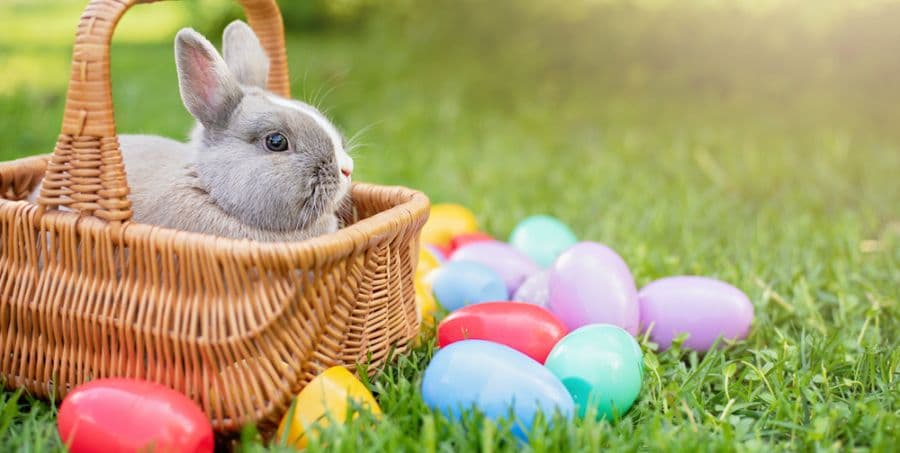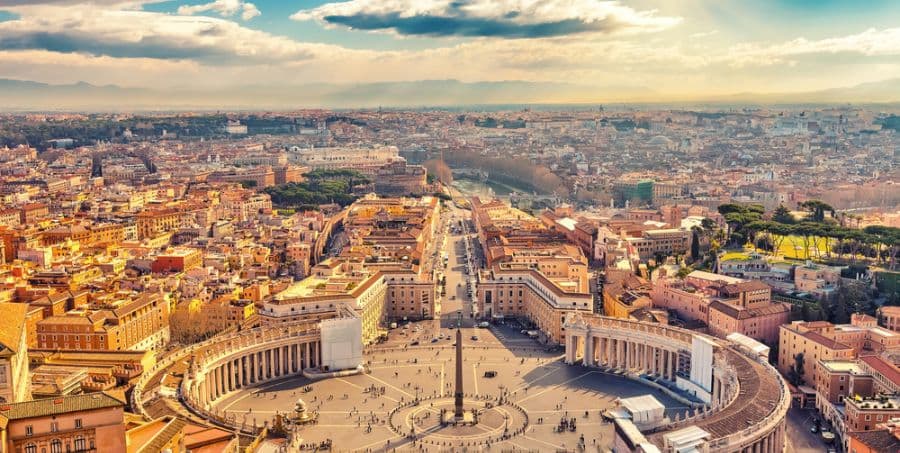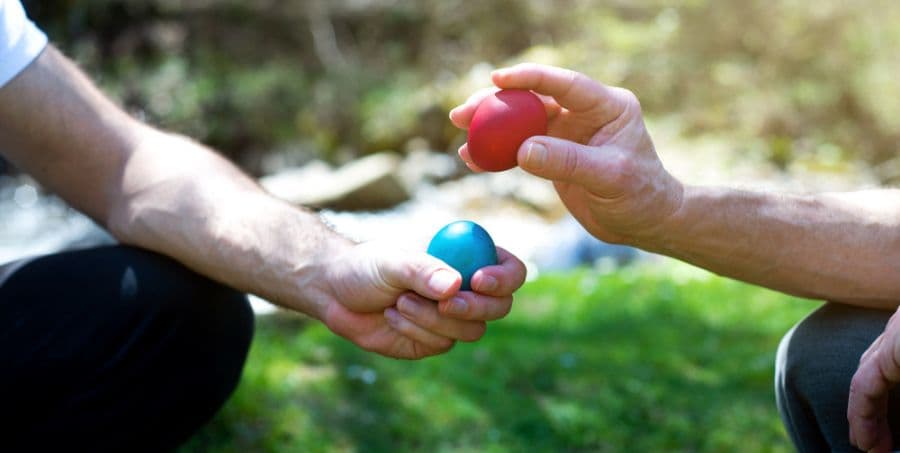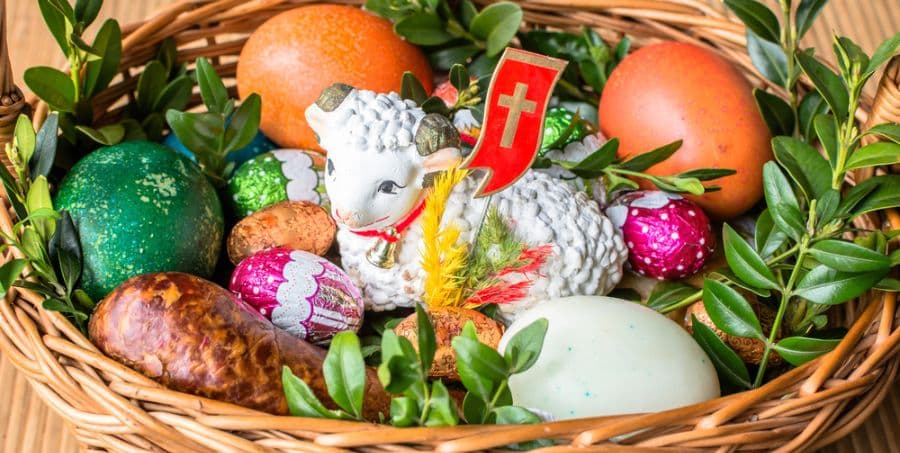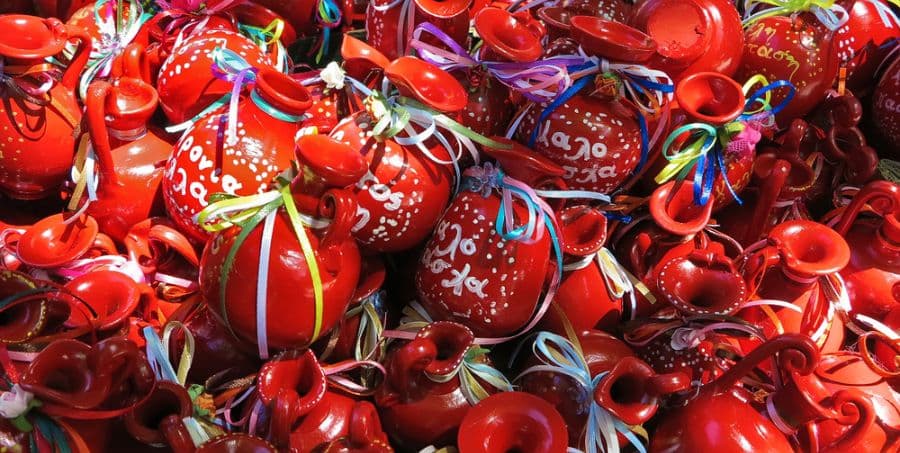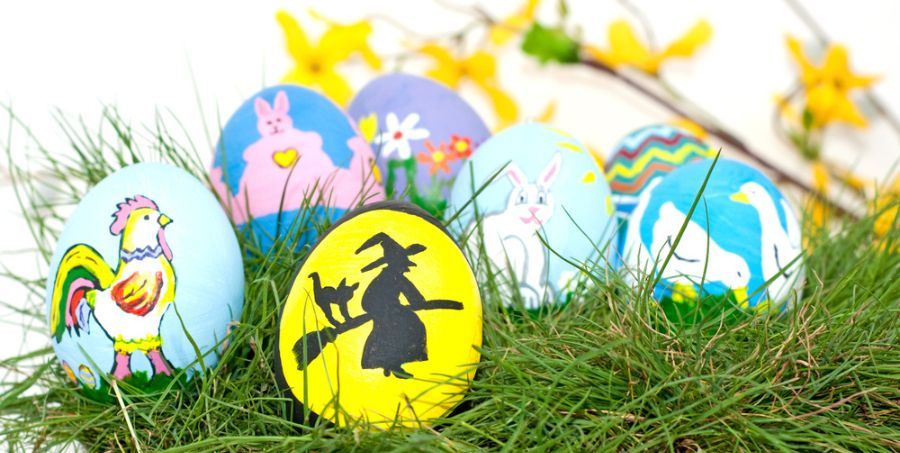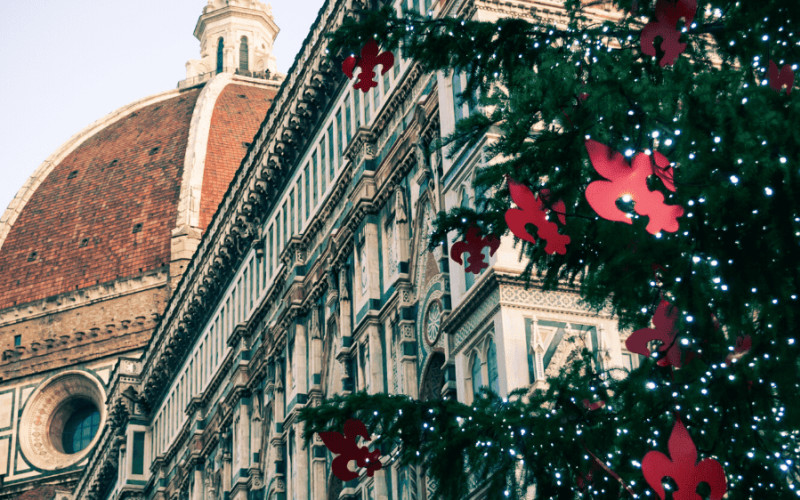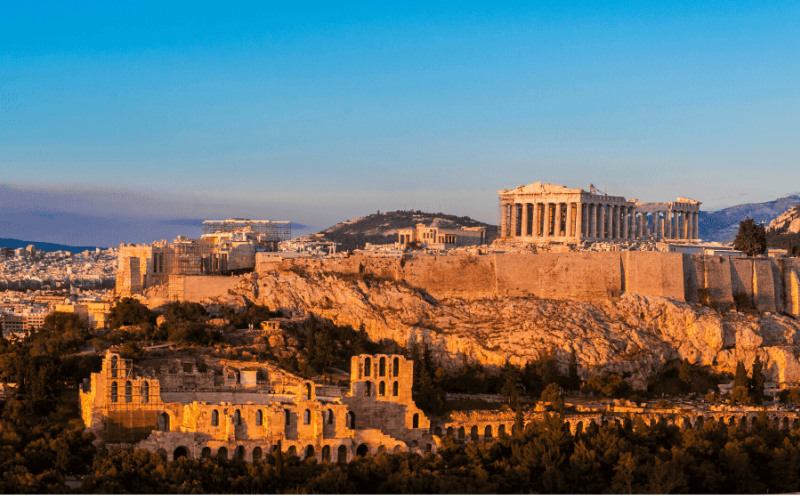Every year Easter is celebrated by many people around the world, with some countries commemorating this special occasion with their own unique traditions. We’ve selected some interesting Easter Traditions around the world, which may inspire you to spend the Easter weekend abroad and experience some local festivities.
Where did Easter Egg Decorations originate?
Decorating eggs actually predates Christianity; engraved eggs have been found in Africa which are over 50,000 years old. The early Christians of Mesopotamia stained eggs with red dye to represent the crucifixion of Christ. It’s believed the Christian Church adopted this custom around the Middle Ages. The hollow egg is a symbol of his empty tomb, while the cracking of the shell represents his resurrection. Over time, decorative eggs became a popular gift, particularly in Central and Eastern Europe. The most famous decorative eggs are of course Fabergé eggs, made by the Russian jeweller Peter Carl Fabergé between 1885 and 1917 for the Russian Tsars. 43 of the original 50 produced have survived to this day. Chocolate Easter Eggs are linked with the invention of the chocolate mould. In 1875 the Cadbury family produced the first chocolate egg and the famous creme egg was launched in 1971. Today, Easter Eggs are an important component of the celebrations in almost all countries.
Where is the Easter Bunny from?
Rabbits are also a key symbol for Easter and some believe this stems from the Pagan Festival of Eostre which was celebrated at the start of Spring. The Easter Bunny, as we know it today, originated in America. Around the 1700s, German immigrants in Pennsylvania, USA brought over tales of ‘Osterhase’, an egg-laying hare; children would make nests for it to lay its colourful eggs. The custom became popular across the USA and eventually the Easter Bunny delivered chocolate and other gifts! In some countries, other animals deliver Easter Eggs, in Switzerland it's cuckoos and in some parts of Germany it’s a fox!
Across the globe people still celebrate Easter and all of them have their own little variations when it comes to their traditions.
Italy
On Easter Sunday, thousands of people go to St. Peter’s Square in Rome to hear the Pope give a blessing, ‘Urbi et Orbi’ which means ‘To the city and to the world.’ This formal address is delivered from the balcony of St. Peter’s Basilica and is an important part of the Easter liturgy. It includes prayers and well-wishes, and is typically broadcast internationally to Catholic communities around the world.
Germany & Austria
‘Easter Baskets’ filled with chocolate, Easter eggs and all kinds of toys are a real treat for children in Germany and Austria. The ‘Osternest’ is usually hidden somewhere in the garden and the children have to hunt for it. Another tradition is ‘Egg Tapping’ where the main aim is to shatter the egg of the other person.
Poland
Poland has very unique traditions. The ‘Blessing Basket’ is necessary when it comes to Easter in Poland. Small baskets filled with eggs, bread, salt, pepper, cake and white coloured sausages kick off Easter celebrations on Holy Saturday. The day after Easter, boys swat their girlfriends with small willow branches and on Easter Tuesday it’s the girls’ turn to swat their boyfriends back!
Norway
Since around 1923, a unique Easter tradition in Norway is to read crime novels or “Påskekrimmen”, or watch detective dramas! Many publishers and TV stations create new crime thrillers just for Easter.
Greece
In Greece some people make Tsoureki, a sweet bread and they usually eat roast lamb on Easter Sunday. They dye boiled eggs red for a game where they have to crack against each other and try to keep their own egg intact as best as possible, the person left with the strongest egg is the winner and will have good luck for the year. On the Greek Island of Corfu, it’s tradition to throw big clay pots filled with water from their balconies to ward off bad spirits and to mark the beginning of Spring.
Sweden
On Maundy Thursday, Swedish children dress up as ‘Easter Hags’, which sounds more like Halloween! Easter superstitions include the belief in witches and their black magic being active during Easter celebrations.
Australia
In Australia Easter marks the beginning of Autumn. Bilby, a native endangered animal, replaces the Easter Bunny in Australia; there are chocolate bilbies and manufacturers donate some of the profits to protect the endangered species.
Hungary
In Hungary, they celebrate Easter with fun and some amusing traditions. ‘Ducking Monday’ or ‘Water Plunge Monday’ is the Hungarian tradition of young men pouring water buckets over young women’s heads.
Has this inspired you to travel next Easter? Discover all Easter break holidays and celebrate in a new destination.


